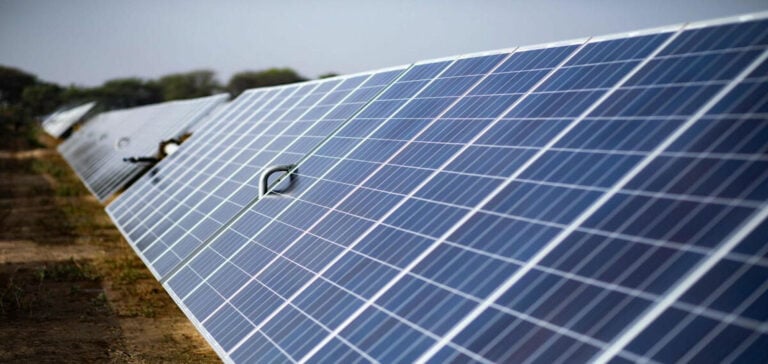An ambitious photovoltaic panel factory project is taking shape in Moselle, in the Sarreguemines-Hambach region. Led by HoloSolis, the project is positioned as the largest solar panel factory in Europe, with a massive investment of 709 million euros.
Residents’ concerns and HoloSolis responses
With a production capacity of 5 gigawatts, the plant has the potential to manufacture up to 10 million solar panels a year. According to HoloSolis president Jan Jacob Boom-Wichers, the plant will have a significant impact on energy independence, providing power to a million homes a year.
The announcement of this project aroused great interest among local residents. During recent public consultations, many residents raised questions about construction details, including building size, potential noise levels, and possible emissions. Some also fear that the plant could be classified as a Seveso site, due to the presence of another site of this type nearby.
HoloSolis seeks to reassure the local community by explaining how the plant works. The site will be divided into two distinct parts: the photovoltaic cell manufacturing unit on one side, and assembly on the other. The aim is to minimize potential impacts on the environment and residents’ quality of life.
The REC Solar Experience and Lessons Learned
This project is not the first of its kind in the region. In 2022, a Norwegian company, REC Solar, had proposed a similar project with an investment of 681 million euros, aiming to create over 1,500 jobs. However, the project was abandoned due to environmental concerns, notably excessive water use.
Support from the Association de Défense contre la Pollution
Despite concerns, some environmental groups, such as the Association de défense contre la pollution de Sarreguemines et environs (ADPSE), support the project overall, emphasizing its positive role in the energy transition. However, they remain vigilant about the sustainable use of natural resources, especially water.
French Government Interest and Expected Economic Impact
This project has also attracted the attention of the French government. At the Choose France summit last May, Industry Minister Roland Lescure welcomed the initiative, stressing the importance of producing “Made in France” solar panels. He stressed the importance of reducing dependence on solar panels imported from abroad.
The HoloSolis project will also create job opportunities for the region. The plant is expected to create 1,700 jobs over time, offering positive economic prospects for the local population. HoloSolis president Jan Jacob Boom-Wichers emphasized the expertise of the local workforce, saying that the region’s population has the necessary experience to work in a plant of this scale.
The next step for HoloSolis is to submit a building permit and ICPE (Installation Classée pour la Protection de l’Environnement) application in December. Construction is scheduled to start in the second quarter of 2024, with photovoltaic panel production scheduled for 2025.
The project to build Europe’s largest photovoltaic panel factory in Moselle is generating significant enthusiasm, but also legitimate concerns among local residents. As the region prepares to host this major facility, attention is turning to environmental impact, resource sustainability, and potential economic benefits. This initiative is a concrete example of the industry’s move towards cleaner, more sustainable energies, with both local and national repercussions.






















